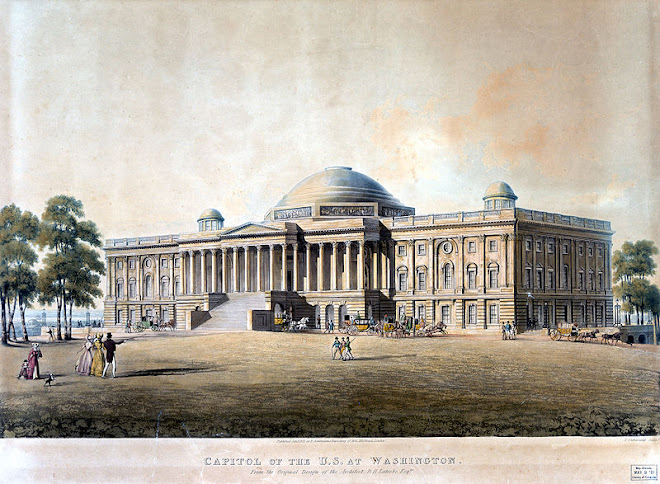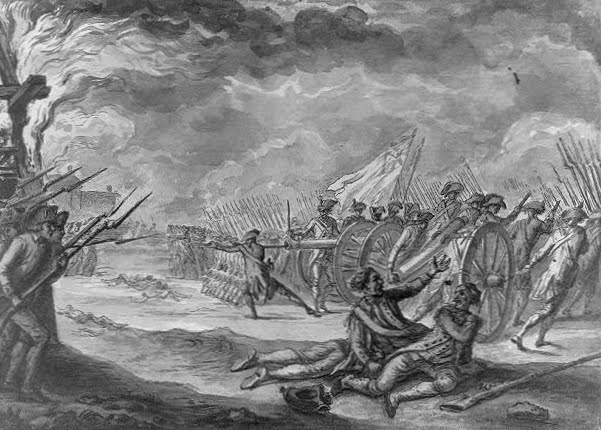From The Heritage Foundation:
Obamacare: Bad 6th Circuit Decision Assures Supreme Court Review in Fall
Yesterday, the Sixth Circuit Court of Appeals issued a decision upholding Obamacare against a constitutional challenge. While this is disappointing, there are several reasons to believe that this flawed decision is not predictive of how the Supreme Court will rule.
In recent years, the Sixth Circuit has achieved a growing reputation for not just reversals, but summary reversals at the Supreme Court. In a summary reversal, the Supreme Court unanimously reverses a lower court decision without hearing argument or
The Scoop
New Chart: Medicare Adds to Deficit More Than Any Other Federal Program
Two Cheers for Coburn-Lieberman Medicare Proposal
Doctors, Medical Students Abandon AMA in Search of Alternatives
Health Reform that Follows the Nation's First Principles
Video: Sen. Hatch on Real Medicaid Reform
even having a full merits briefing—because the decision is so clearly wrong. It is a sure sign of an activist court misapplying the law.
Among the liberal judges who have helped the Sixth Circuit achieve this less-than-stellar reputation is Boyce Martin. When he was the chief judge, he infamously manipulated the panel of an affirmative action case to make sure liberals outnumbered conservatives. He also shifted the timing of the review of an en banc case—he waited until conservative judges had left the court to circulate the petition, so that they would not be on the panel to hear the case. Martin is the author of today’s unfortunate opinion.
There are several reasons to believe this decision will be an outlier.
•Health insurance v. health care. First, the court blurs the line on which market is regulated, and the two judges in the majority opinion do so with the plaintiffs’ blessing. Judge Martin’s opinion notes that the plaintiffs “accept the class of activities that the provision purports to reach: participating in the national market for health care services without maintaining insurance that meets the minimum coverage requirement.” This is a massive (and unnecessary) legal concession. The government has sought to characterize the case as about regulating health care rather than health insurance—to avoid the inconvenient truth that it is seeking to force individuals who are not in the health insurance market into the market. By doing so, the government is regulating non-economic inactivity. But by shifting the argument to the health care market with the agreement of the parties, the Court was able to make the next big leap—that “far from regulating inactivity, the minimum coverage provision regulates individuals who are, in the aggregate, active in the health care market.” This mistaken concession made it that much easier for the government, and it is not a mistake that the states or the National Federation of Independent Business (NFIB) have made in their litigation.
•Challenging precedent. Second, Judge Sutton’s decision concurring in judgment turns in large measure on an interpretation of facial challenges (challenges in which a plaintiff alleges that the statute is invalid under all circumstances) that is inconsistent with the Supreme Court’s interpretation and precedent on that question. Sutton’s view does not comport with leading cases in the Commerce Clause context or with recent decisions by the Supreme Court modifying the standard for facial challenges.
•Support for argument that mandate is unconstitutional. The dissenting judge, James Graham, called the question correctly when he wrote that “the mandate is a novel exercise of Commerce Clause power” and that Congress has never before “required individuals to purchase a good or service.” He concluded that the individual mandate is unconstitutional and that if this exercise of power is allowed, “it is difficult to see what the limits on Congress’s Commerce Clause authority would be.” Graham asks rhetorically, “What aspect of human activity would escape federal power?” Only through a constitutional amendment could a “structural shift of that magnitude…be accomplished legitimately.”
This is the first of the circuit court decisions to address the issue, but most court-watchers are fervently awaiting the decisions in cases raised by the states and the NFIB. Again, it is clear that the question of whether Congress has abused its power will ultimately be answered by the Supreme Court. The fact that this decision came down today—in the same week that the Supreme Court ended its current term—just about guarantees that the Court will have the opportunity to review the statute in its fall term.
Obamacare: Bad 6th Circuit Decision Assures Supreme Court Review in Fall
Yesterday, the Sixth Circuit Court of Appeals issued a decision upholding Obamacare against a constitutional challenge. While this is disappointing, there are several reasons to believe that this flawed decision is not predictive of how the Supreme Court will rule.
In recent years, the Sixth Circuit has achieved a growing reputation for not just reversals, but summary reversals at the Supreme Court. In a summary reversal, the Supreme Court unanimously reverses a lower court decision without hearing argument or
The Scoop
New Chart: Medicare Adds to Deficit More Than Any Other Federal Program
Two Cheers for Coburn-Lieberman Medicare Proposal
Doctors, Medical Students Abandon AMA in Search of Alternatives
Health Reform that Follows the Nation's First Principles
Video: Sen. Hatch on Real Medicaid Reform
even having a full merits briefing—because the decision is so clearly wrong. It is a sure sign of an activist court misapplying the law.
Among the liberal judges who have helped the Sixth Circuit achieve this less-than-stellar reputation is Boyce Martin. When he was the chief judge, he infamously manipulated the panel of an affirmative action case to make sure liberals outnumbered conservatives. He also shifted the timing of the review of an en banc case—he waited until conservative judges had left the court to circulate the petition, so that they would not be on the panel to hear the case. Martin is the author of today’s unfortunate opinion.
There are several reasons to believe this decision will be an outlier.
•Health insurance v. health care. First, the court blurs the line on which market is regulated, and the two judges in the majority opinion do so with the plaintiffs’ blessing. Judge Martin’s opinion notes that the plaintiffs “accept the class of activities that the provision purports to reach: participating in the national market for health care services without maintaining insurance that meets the minimum coverage requirement.” This is a massive (and unnecessary) legal concession. The government has sought to characterize the case as about regulating health care rather than health insurance—to avoid the inconvenient truth that it is seeking to force individuals who are not in the health insurance market into the market. By doing so, the government is regulating non-economic inactivity. But by shifting the argument to the health care market with the agreement of the parties, the Court was able to make the next big leap—that “far from regulating inactivity, the minimum coverage provision regulates individuals who are, in the aggregate, active in the health care market.” This mistaken concession made it that much easier for the government, and it is not a mistake that the states or the National Federation of Independent Business (NFIB) have made in their litigation.
•Challenging precedent. Second, Judge Sutton’s decision concurring in judgment turns in large measure on an interpretation of facial challenges (challenges in which a plaintiff alleges that the statute is invalid under all circumstances) that is inconsistent with the Supreme Court’s interpretation and precedent on that question. Sutton’s view does not comport with leading cases in the Commerce Clause context or with recent decisions by the Supreme Court modifying the standard for facial challenges.
•Support for argument that mandate is unconstitutional. The dissenting judge, James Graham, called the question correctly when he wrote that “the mandate is a novel exercise of Commerce Clause power” and that Congress has never before “required individuals to purchase a good or service.” He concluded that the individual mandate is unconstitutional and that if this exercise of power is allowed, “it is difficult to see what the limits on Congress’s Commerce Clause authority would be.” Graham asks rhetorically, “What aspect of human activity would escape federal power?” Only through a constitutional amendment could a “structural shift of that magnitude…be accomplished legitimately.”
This is the first of the circuit court decisions to address the issue, but most court-watchers are fervently awaiting the decisions in cases raised by the states and the NFIB. Again, it is clear that the question of whether Congress has abused its power will ultimately be answered by the Supreme Court. The fact that this decision came down today—in the same week that the Supreme Court ended its current term—just about guarantees that the Court will have the opportunity to review the statute in its fall term.
.gif)






























